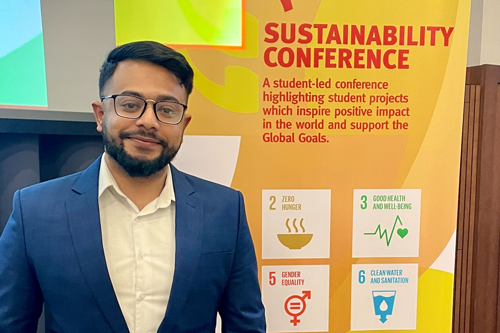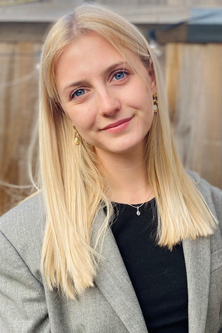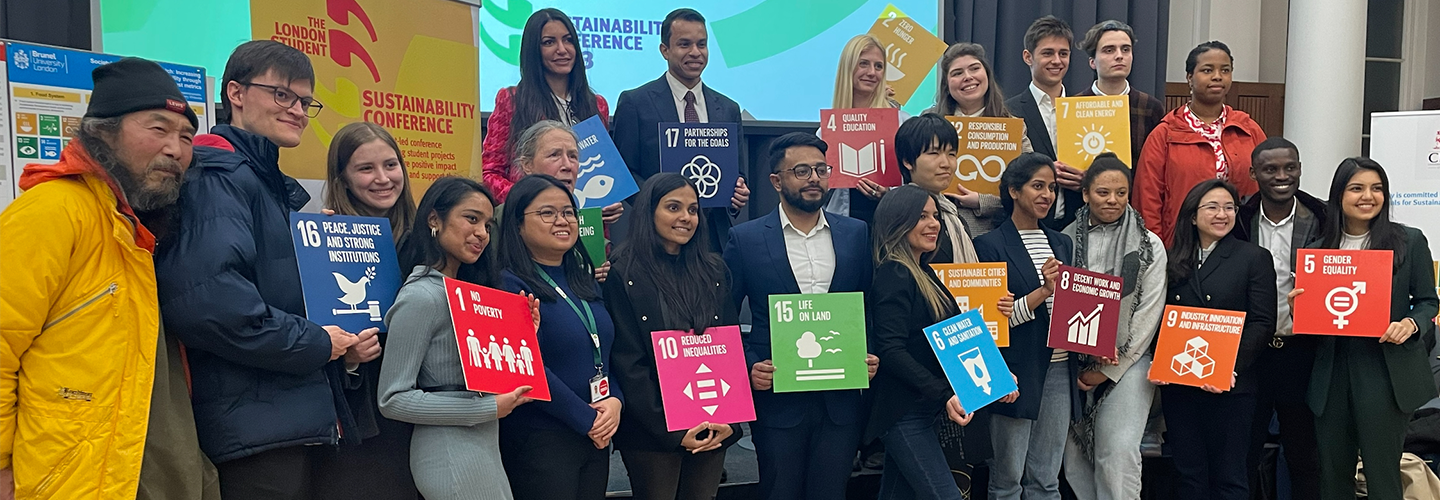Published
The fifth London Student Sustainability Conference (LSSC23), held Monday 20 February, was a collaboration with ten London-based universities and saw 350 student and alumni participants give presentations and workshops, host a poster exhibition, and attend a networking evening.
LSSC23 was a hybrid event held at King’s College London and online. The event series was started by City, University of London in 2018 based on the UN Global Goals to offer students the opportunity to present and discuss their research and projects related to sustainability.
City student Phahmee Khalid, MSc Energy and Environmental Technology and Economics (2023) and alumna Lily Goss, MSc Organisational Psychology (2022) were selected to give presentations based on their research.
Discussing the event, Eleanor Simes, Head of Sustainability at City said:
Professor Shitij Kapur, President and Principal at King’s, welcomed the students. He said:
The health and environmental benefits of urban parks
Phahmee Khalid is currently studying towards his MSc in Energy and Environmental Technology and Economics at City.
He gave a presentation based on the paper ‘The carbon sequestration potential of urban public parks of densely populated cities to improve environmental sustainability’, which he co-authored with Dr Saleh Shadman and was published in the Journal of Sustainable Energy Technologies and Assessments.

With a rapid increase in the earth’s population and related rising energy demands in residential areas, Phahmee stated that an increase in urban parks worldwide could serve as effective decarbonisation tools. In addition to strategies such as a move away from the use of fossil fuels, he noted the importance of decarbonisation. Phahmee hoped to spread awareness of the importance of urban parks through his research.
He highlighted the importance of trees in the process of carbon sequestration, which means the capturing, removal and storage of CO2 from the earth’s atmosphere.
Urban parks have many benefits: they can decrease temperatures in the surrounding areas by 5-10° Celsius, they reduce noise pollution, provide shade and filter the air.
As it stands, many trees have been planted without much strategy, whereas Phahmee’s research found specific breeds of trees that had greater carbon sequestration capabilities. For example, his research found mango trees and mahogany trees, as well as trees that were taller or over 15 years old, had the greatest carbon sequestration potential.
Activate pro-environmental values to encourage recycling in offices
“We know we’re in a climate crisis and reaching a critical point,” said Lily Goss. “I have been interested in sustainability for a long time and want to use my education to make a difference in the corporate world.”

Based on the current literature, she knew that businesses create twice the amount of waste compared to households. The literature also suggests that the benefits to recycling at work are numerous: not only are there environmental benefits, but on average, employees report higher satisfaction at work and tend to stay in their organisations longer.
She decided to research pro-environmental behaviour at work for her master’s dissertation, specifically focusing on the psychological motivators that can encourage office workers to recycle at the office.
Lily’s research found that while a person’s environmental values were the biggest predictor of how often they recycled, this impacted their habits only 20 per cent of the time. Additionally, she found that employees were not influenced by how much their colleagues recycled. These findings suggested that companies would need to activate pro-environmental values in the workplace to increase recycling habits.
Sustainability at City
Sustainability is a key part of City’s strategy and the University aims to live its values through action.
City was the founder of the London Student Sustainability Conference, and in 2022 was ranked 44th in the UK for its sustainability initiatives in the People and Planet University League. City has also made the commitment to achieve net zero carbon emissions by 2040, at the latest.
Looking ahead, Eleanor Simes said the University will be launching its Sustainability Board and publishing its strategy on working towards this goal.



